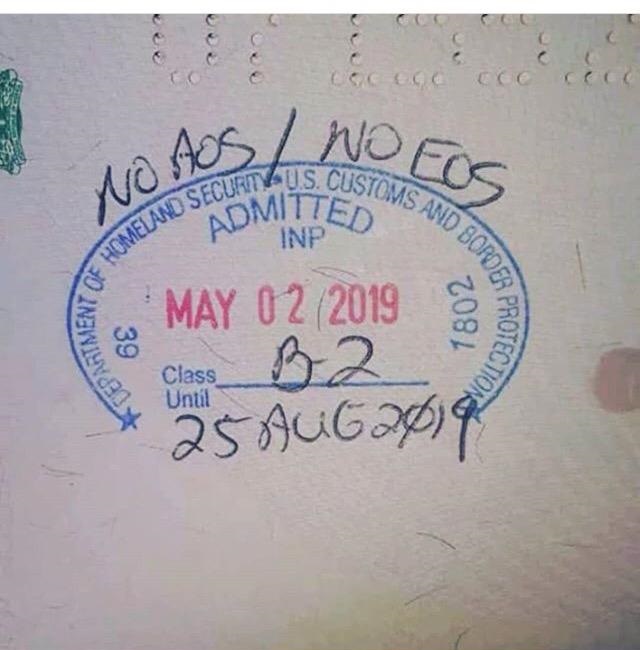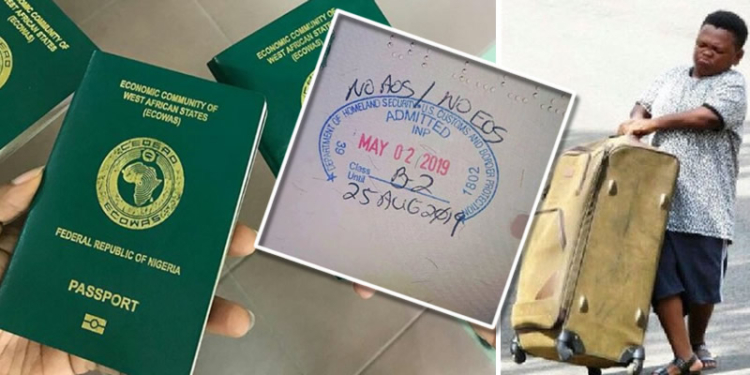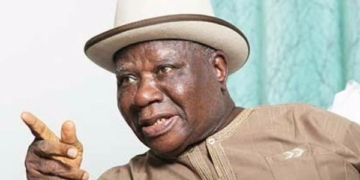Following the news about the United States of America government’s ban on Drop Box, a Nigerian man, via Instagram has called on Nigerians to be careful if they have to travel to the United States.
According to him, the US Customs and border protection security are now signing No AOS / No EOS on passports of visa holders or immigrants at the US airport.
He shared a picture of what it looked like claiming someone he knows just flew in Atlanta and got her passport stamped with the words. See post and picture below.
He wrote;
“Can you see what they are doing to people now in America? They stamp your passport and write this, Some one just came into Atlanta and they stamped her passport AOS meaning no adjustment of status.
“The next one EOS means no extension of status. So no longer extending your 6 months stay Or adjustment of status or getting married while you are here, everyone has to be careful this people are not joking.

What does NO COS / AOS / EOS mean?
The annotation of “No COS/AOS/EOS” on the passport means no change of status, adjustment of status, or extension of status. It expresses the immigration inspector’s opinion that the United States Citizenship and Immigration Services should not grant an extension of your visitor’s stay or approve a change to another status.
Does No EOS / AOS on my passport ban me from returning to the country?
The Customs and Boarder Protection agents use this stamp when they suspect something questionable about a persons travel patterns. This is a red flag on any immigrant’s passport, it is not binding, but will cause more time-consuming interactions each time there is an attempted entry by the holder to the US henceforth.
It is not too common for a Customs and Border Protection (CBP) officer to include this annotation in a visitor’s passport, it does happen sometimes. This annotation alone does not necessarily place a ban from COS/AOS/EOS, or from coming back to the U.S. As long as the holder still has a valid visa, they should be able to come back to the U.S. However, that does not mean that it will be guaranteed entry to the U.S. on the next trip. It will be up to the CBP officer at the port of entry to determine whether or not the passport holder will be admitted to the U.S, Eyad Tabahi, an Immigration Attorney revealed.




Discussion about this post